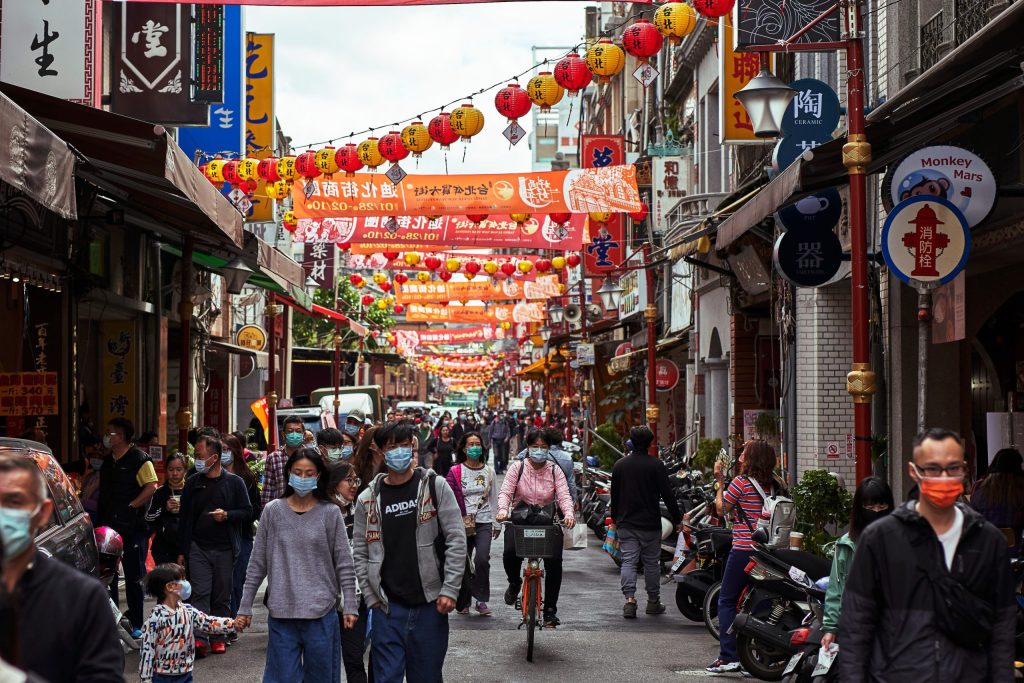Taiwan’s pandemic restrictions have been so successful that the country has had fewer than 1,000 cases with just nine deaths. Like other Asian countries, Taiwan achieved this feat through strict border closures and rigorous track and tracing. And yet Taiwan’s government knows that a COVID jab is the only way to avoid prolonged international isolation — without it, relaxing border controls could see the island nation consumed by a wave of infections that, so far, it has been able to avoid.
But getting hold of vaccines has been a difficult job. Taiwan is yet to secure enough doses for all of the citizens it wants to vaccinate. For the doses it has secured, a detailed time frame for their rollout is yet to be published. That job becomes more difficult still when navigating a sensitive relationship with your superpower neighbor.
Initially, Taiwan hoped to fill this deficit using doses from the Covax scheme, run in partnership with the World Health Organization of which, at China’s behest, Taiwan is not a member. In late November, Jen-Hsiang Chuang, an official in Taiwan’s Central Epidemic Command Center (CECC), said that Taiwan would be able to purchase enough doses through the Covax scheme to vaccinate at least 10 percent of its population — over two million people.
However, Covax forecasts published earlier this month did not explicitly list Taiwan as a recipient. Instead, 1.3 million doses were allocated to ‘non-UN member states’. Five days after the publication of the forecast, the CECC announced Taiwan would receive just 200,000 doses for the scheme.
For Taiwan, such difficulties are not uncommon; with vaccines, like trade and diplomacy, it must delicately pursue negotiations while avoiding a heavy-handed response from China. Last week, suspicions grew that China was behind a foiled deal to secure five million doses through the German firm BioNTech. In a radio interview on Wednesday, health minister Chen Shi-chung pointed the finger at Beijing. BioNTech is a German company, but its distributor in the greater China region is Shanghai Fosun Pharmaceutical Company. ‘Certain people don’t want Taiwan to be too happy,’ he said. BioNTech has since said they will complete the order.
Chinese vaccines are also the object of suspicion. Earlier this month, Reuters reported that China had begun offering free vaccinations to Taiwanese people living in the country in a bid to ‘curry favor’ with people they claim as compatriots. Taiwan’s CECC had to discourage the Taiwanese from receiving unauthorized vaccines after rumors surfaced of private groups traveling to China for that reason. Citing efficacy concerns, Taiwan’s government has ruled out purchasing Chinese vaccines.
To some, however, Taiwan’s refusal to authorize a Chinese vaccine is playing politics with public health. A recent editorial in Taiwan’s United Daily News said that ‘the purchase of vaccines should not be subject to political interference.’ Former Taiwanese president Ma Ying-jeou — of the Chinese Nationalist party, the current opposition party which encompasses stances more sympathetic to China — said that if China offered Taiwanese people a vaccine, they should take it.
To others in Taiwan, the idea of voluntarily taking a Chinese vaccine is, quite literally, laughable. A popular TV show host recently pointed out that China was using the vaccine as diplomatic fodder but not actually using it to vaccinate its own people. ‘Xi Jinping’s probably going to get the Pfizer vaccine,’ he said holding back laughter. ‘But he’s not going to tell us!’
Misinformation around vaccines has gone hand-in-hand with their politicization. Earlier this month, the CECC had to deny a front-page story in the United Daily News which claimed the administration had secured 100,000 doses of the Pfizer vaccine through ‘diplomatic channels’ with the United States. The health minister said there was ‘no such thing’, and warned against speculation: ‘misinformation will only hamper our negotiations’.
Taiwan still awaits the arrival of its first COVID-19 vaccinations; the AstraZeneca order is due next month, and the Moderna doses by the middle of the year. As in most countries with vaccine programs already underway, front-line workers will be the first to receive jabs. Until then, Taiwan’s government will do all it can to secure the remaining vaccines without any further complications.
This article was originally published on The Spectator’s UK website.

























